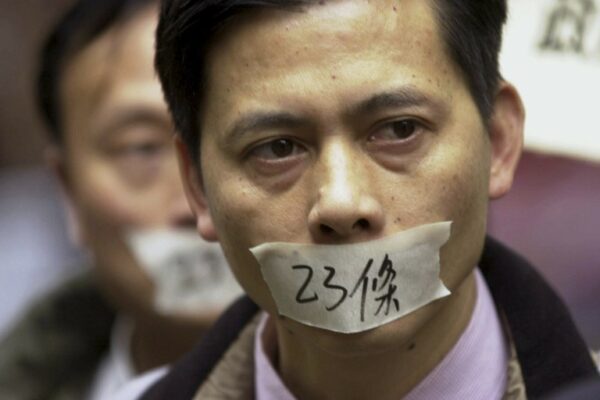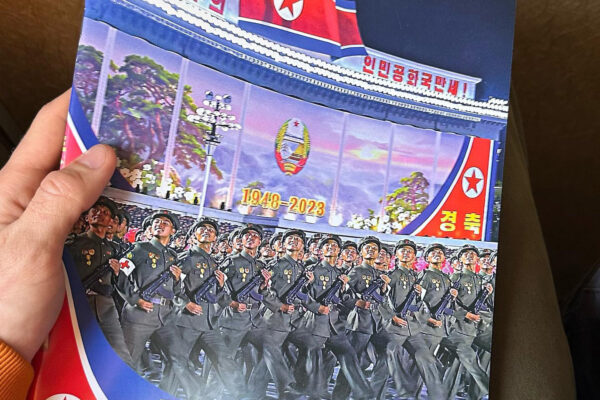
China arrests more than 1,000 Tibetans protesting Chinese dam project
Police on Friday arrested more than 1,000 Tibetans including monks from at least two local monasteries, in southwestern China’s Sichuan province after they protested the construction of a dam expected to destroy six monasteries and force the relocation of two villages. The arrested individuals – both monks and local residents – are being held in various places throughout Dege County in Kardze Tibetan Prefecture because the police do not have a single place to detain them, said the sources who requested anonymity for safety reasons. The sources said that those arrested have been forced to bring their own bedding and tsampa – a staple food for Tibetans that can be used to sustain themselves for long periods. One source said that the fact that police are asking Tibetans to bring their own tsampa and bedding indicates that they will not be released anytime soon. On Thursday, Feb. 22, Chinese authorities deployed specially trained armed police in Kardze’s Upper Wonto village region to arrest more than 100 Tibetan monks from Wonto and Yena monasteries along with residents, many of whom were beaten and injured, and later admitted to Dege County Hospital for medical treatment, sources said. Citizen videos from Thursday, show Chinese officials in black uniforms forcibly restraining monks, who can be heard crying out to stop the dam construction. After the mass arrests, several Tibetans from Upper Wonto village who were employed in other parts of the country returned to their hometown to visit the detention centers. They were demanding the release of the arrested Tibetans. However, they too got arrested by the authorities. The Chinese Embassy in Washington hasn’t commented on the arrests other than in a statement issued Thursday that said the country respects the rule of law. “China protects the legitimate rights and interests of Chinese nationals by the law,” the statement said. Massive dam project The arrests followed days of protests and appeals by local Tibetans since Feb. 14 for China to stop the construction of the Gangtuo hydropower station. On 14th February at least 300 Tibetans gathered outside Dege County Town Hall to protest the building of the Gangtuo dam, which is part of a massive 13-tier hydropower complex on the Drichu River with a total planned capacity of 13,920 megawatts. The dam project is on the Drichu River, called Jinsha in Chinese, which is located on the upper reaches of the Yangtze, one of China’s most important waterways. Local Tibetans have been particularly distraught that the construction of the hydropower station will result in the forced resettlement of two villages – Upper Wonto and Shipa villages – and six key monasteries in the area – Yena, Wonto, and Khardho in Wangbuding township in Dege county, and Rabten, Gonsar and Tashi in the Tibetan Autonomous Region, sources told RFA. Sources on Friday also confirmed that some of the arrested monks with poor health conditions were allowed to return to their monasteries. However, the monasteries – which include Wonto Monastery, known for its ancient murals dating back to the 13th century – remained desolate on the eve of Chotrul Duchen, or the Day of Miracles, which is commemorated on the 15th day of the first month of the Tibetan New Year, or Losar, and marks the celebration of a series of miracles performed by the Buddha. “In the past, monks of Wonto Monastery would traditionally preside over large prayer gatherings and carry out all the religious activities,” said one of the sources. “This time, the monasteries are quiet and empty. … It’s very sad to see such monasteries of historical importance being prepared for destruction. The situation is the same at Yena Monastery.” Protests elsewhere Fueled by outrage over the destruction of cultural sites and alleged human rights abuses in Derge, Tibet, Tibetan communities across the globe have erupted in protest. From Dharamsala, home to the Dalai Lama, to rallies outside Chinese embassies in New York and Switzerland, demonstrators are raising their voices. Kai Müller, head of the International Campaign for Tibet, condemned China’s “ruthless destruction” of Tibetan heritage, while Human Rights Watch highlighted the difficulty of obtaining information due to China’s tight control. These protests underscore the simmering tensions between the Tibetan people and the Chinese government, with concerns ranging from cultural erasure to potential threats to regional water security. Read about the entire struggle for Tibet and of His Highness Dalai Lama: https://ij-reportika.com/his-holiness-dalai-lama-and-the-tibetan-cause/






